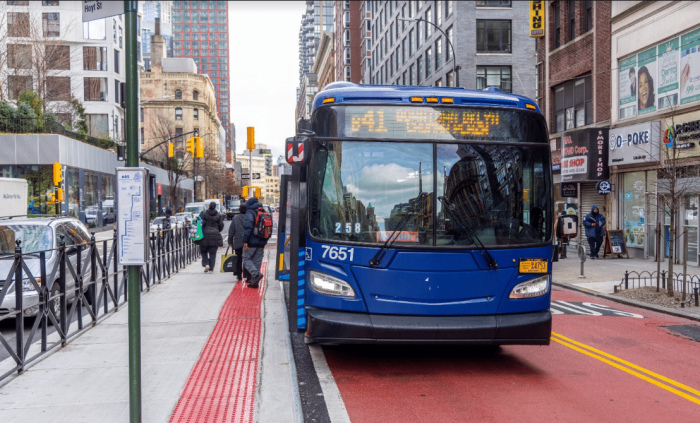By Tien-Shun Lee
Eight months after its implementation, business people around the borough see the 18.5 percent property tax increase as a necessary belt-tightening measure even though it has caused them to do more with less and cut donations for services like the Doe Fund street cleaning.
“Anyway I must pay,” said Fred Fu, the leader of the Flushing Chinese Business Association. who operates Shine Travel at 40-42 Main Street. “Now I have only eight employees doing a 10-people job. Before I worked 12 hours, now I work 14 hours. Because of the economy, the city must have money and increase the taxes. Everybody is trying to work harder to help the city.”
The City Council approved the 18.5 percent property tax increase by a 41-6 vote in November to help bridge the city's budget gap, which was about $1.1 billion for the last fiscal year and $6.4 billion for the current fiscal year. The tax was expected to bring in $837 million for the fiscal year that ended June 30.
Fu said he will pay $2,500 more in taxes this year than last year because of the property tax hike. He hopes that the city will give merchants something back in return for their tax money, like some special loans to help small businesses.
“They should put more effort into helping small businesses,” said Fu. “After Sept. 11, some businesses are doing badly. A business can struggle for six months, 12 months, but not for three or four years.”
Five out of 15 restaurants on 40th Road, between Main Street and Prince Street went out of business recently, said Fu, in part because of extra expenses like the increased property tax.
“For small businesses there's no way out,” said Fu. “They increased the taxes, what can we do? We stay here.”
Mike McGaddie, the director of neighborhood development at the Queens County Overall Economic Development, an organization that does research and gives advice to start-up businesses, said the hike in property taxes is a serious issue that will impair the ability of some businesses to stay afloat.
“Some businesses are operating on the margin as it is, and this kind of increase could be the death knell for them,” said McGaddie. “In a small store, you could be selling the store out on a regular basis and just be able to pay the few people who work there.”
McGaddie said some businesses might try to make up for the cost of the property tax increase by raising prices on some products.
But Fu said none of the businesses he deals with have increased their prices.
“The Kung Pao chicken was $8.95, it's still $8.95,” said Fu.
For landlords, the rise in property taxes cannot be completely covered simply by passing on the cost to tenants because some properties were not covered by leases at the time of the hike and must be rented out, said Stan Markowitz, the vice president of leasing at Muss Development Co. in Forest Hills.
“For the most part, in most leases it's passed through,” said Markowitz. “But in the long term, landlords can't just increase rent by 18.5 percent. The market rate is what it is. If it was $30 per square foot today, then it's going to be $30 per square foot tomorrow too, even with the tax increase.”
Markowitz, who spearheaded a failed effort to establish a Business Improvement District on Austin Street in Forest Hills said the proposed BID suffered from the effects of the property tax increase. Property owners were not willing to shell out more money for a BID assessment when they were already dealing with paying for the increase in taxes.
“I know it (the property tax) has had an impact on the neighborhood,” said Leslie Brown, the president of the Forest Hills Chamber of Commerce. “Because of all these increases, businesses have no extra money this year.”
The Doe Fund sanitation services in Forest Hills were discontinued earlier this year because of a lack of funds, and some merchants are concerned that there will not be enough money for neighborhood Christmas lights this year, said Brown.
He added that the increase in property taxes may be contributing to the prevalence of empty stores that have begun popping up in the neighborhood.
“It's a contributing factor,” said Brown. “It's an equation of high rent, high property taxes and a falling economy.”
Despite the added burden of the increased property taxes, Markowitz and Fu said the taxes were not unjustified and had in a sense been approved by the people, since they were passed by the City Council, which represents the people.
“It's not unexpected,” said Markowitz. “In order for the city to continue to operate the way it operates, it needs money. I think the people are willing to pay higher taxes rather than cut services.”
Reach reporter Tien-Shun Lee by e-mail at Timesledger@aol.com, or call 718-229-0300, ext. 155.






























